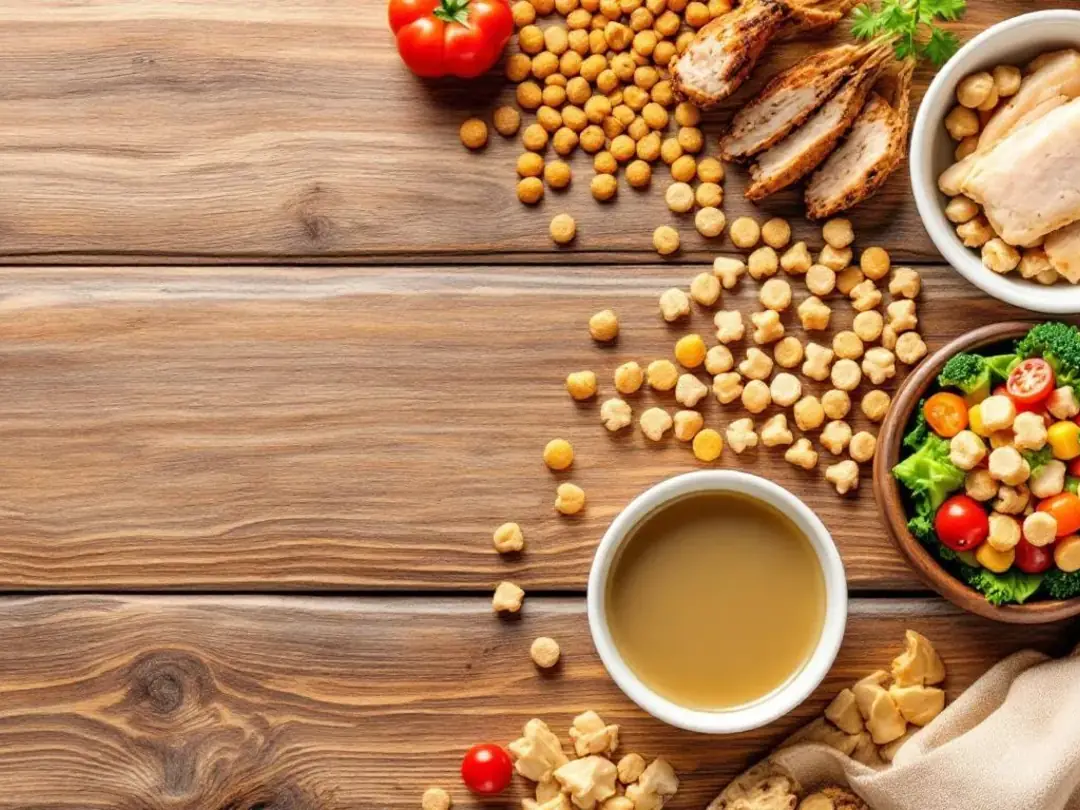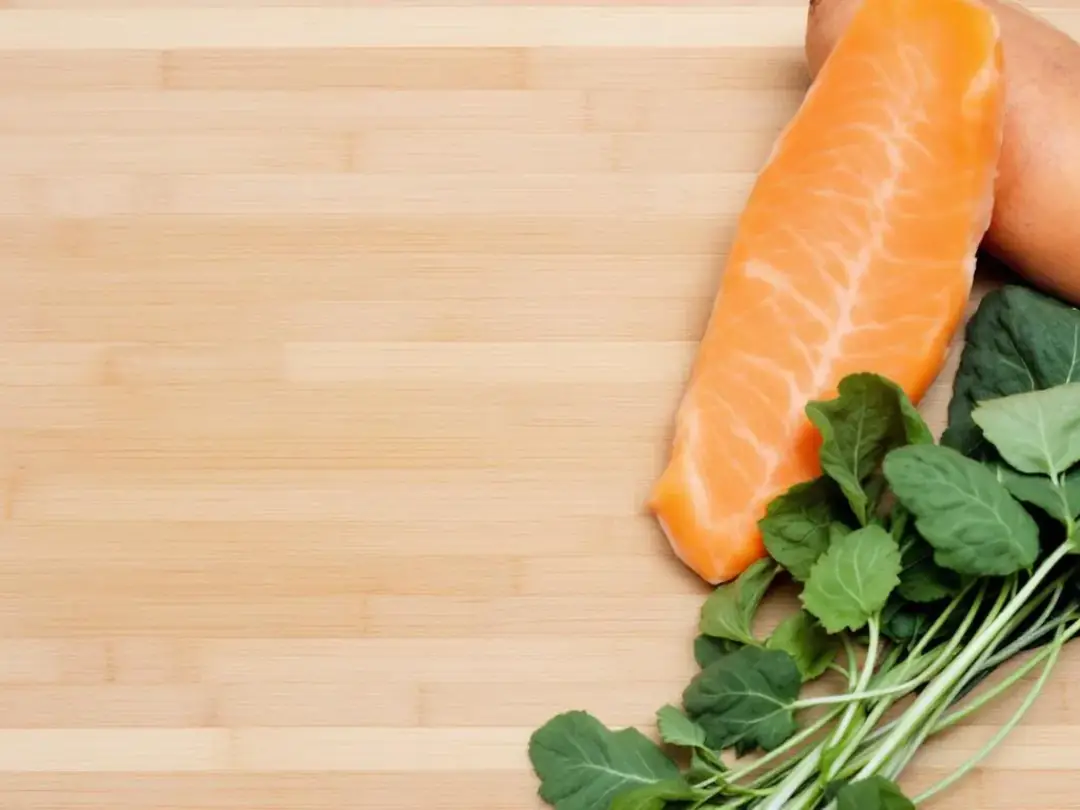Key Takeaways
-
Top picks include Ollie Lamb Dish for overall nutrition, Orijen Large Breed for puppies, and Merrick Classic for adults
-
Essential nutrients include omega fatty acids for coat health, glucosamine for joints, and limited ingredients for sensitive stomachs
-
Avoid artificial preservatives, artificial flavors, meat by-products, and common allergens like soy, wheat, and dairy-especially for Goldendoodles with allergy-related skin issues
-
Fresh and freeze-dried options often provide superior nutrition compared to traditional kibble
Introduction to Goldendoodle Nutrition
As a Goldendoodle owner, providing the best possible nutrition for your dog is essential to support their overall health and well-being. Goldendoodles, being a cross between a Golden Retriever and a Poodle, have unique nutritional needs that must be met to ensure they thrive. A balanced diet that includes high-quality protein sources, whole grains, and essential nutrients is crucial for maintaining healthy skin, coat health, and supporting their large breed dog requirements.
When selecting the best dog food for your Goldendoodle, it's essential to consider their life stage, whether they're a growing puppy or an adult dog. Puppy food for Goldendoodles should be rich in protein and calories to support their rapid growth and development. Adult Goldendoodles, on the other hand, require a balanced diet that maintains their energy levels and supports their overall health. Senior dogs may require a different formulation that addresses their specific needs, such as joint support and easier digestion.
The Best Goldendoodle dog Food stands out over brands that are just "good" dog food brands for Goldendoodles include those that offer human-grade dog food, fresh meals, and dog food toppers that can enhance the nutritional value of their meals. Some popular options include Ollie, The Honest Kitchen, and Open Farm, which offer a range of formulas tailored to meet the unique needs of Goldendoodles. When choosing the best food for your Goldendoodle, consider factors such as ingredient quality, brand reputation, and the specific needs of your dog, including any food allergies or sensitivities.
In addition to selecting the right dog food, it's also important to consider the cost and delivery time of your chosen brand. Many online retailers offer convenient delivery options, including international delivery, and some even offer a preferred tracked returns service. When purchasing dog food online, be sure to check the ingredients, nutritional content, and reviews from other customers to ensure you're getting the best possible food for your Goldendoodle.
By providing your Goldendoodle with a balanced and nutritious diet, you can help support their overall health and well-being, from their coat health to their bone health. Whether you're looking for the best puppy food for your new Goldendoodle puppy or the best dog food for your adult Goldendoodle, there are many options available to meet their unique needs. With a little research and planning, you can help your Goldendoodle thrive and enjoy a long, happy, and healthy life.
What to Look for in the Best Food for Goldendoodles
Choosing the best dog food for your goldendoodle goes beyond picking a popular brand or the most eye-catching bag on the shelf. Goldendoodles, whether mini or standard, thrive on a balanced diet that supports their energetic lifestyle, beautiful coat, and overall well-being. Here's what to keep in mind as you search for the right food for your furry friend:
1. Prioritize Essential Nutrients and Quality IngredientsLook for dog foods that list high-quality proteins-such as chicken, beef, or fish-as the first ingredient. These proteins are crucial for muscle development and maintaining energy levels, especially for active goldendoodle puppies and adults. Whole grains like brown rice and sweet potatoes provide steady energy and are gentle on sensitive stomachs, while ingredients like fish oil and chia seeds help support healthy skin and coat health.
2. Match Food to Your Dog's Life StageGoldendoodle puppies, adult goldendoodles, and senior goldendoodles each have unique nutritional needs. Large breed puppy food is specially formulated to support steady growth and bone health, while adult formulas focus on balanced nutrition for daily activity. Senior dogs benefit from recipes with joint support, such as added glucosamine, and easily digestible ingredients to maintain their well being as they age.
3. Avoid Artificial Additives and Common AllergensThe best dog food for goldendoodles is free from artificial preservatives, colors, and flavors, which can trigger sensitivities or allergies. Instead, opt for human grade dog food or natural recipes that use real, whole-food ingredients. Avoid common allergens like soy, wheat, and dairy, especially if your dog has a history of digestive or skin issues. It's important to understand your goldendoodle's dietary requirements, including whether they need a grain-free or grain-inclusive diet, as some goldendoodles may have specific sensitivities or allergies to certain grains.
4. Consider Special Features and AdditionsSome good dog food brands offer formulas with added benefits, such as dog food toppers for picky eaters, or recipes that include chicken bone broth for extra flavor and hydration. If your goldendoodle is a picky eater or has a sensitive stomach, look for limited ingredient diets or foods designed for certain breeds' needs.
5. Factor in Convenience and CostWhen choosing the best food, consider practical aspects like cost and delivery time. Many brands offer online order options, store delivery, or even international delivery for more flexibility. Look for retailers with paperless and collection options, interest free payment plans, and preferred tracked returns service for items purchased online. This makes it easier to get the right food delivered to your door, whether you need a small bag for a mini goldendoodle or a larger quantity share for a big, active dog.
6. Consult with Your VeterinarianEvery goldendoodle is unique, and what works for one may not suit another. Discuss your dog's dietary needs, life stage, and any health concerns with your vet to ensure you're providing the best dog food for their individual requirements.
7. Stay Flexible and ObservantAs your goldendoodle grows or their needs change, be prepared to adjust their diet. Transition to new food in a few easy steps, monitor their coat health, energy, and digestion, and don't hesitate to try fresh meals, dry kibble, or a combination to see what your dog loves most.
By focusing on balanced nutrition, essential nutrients, and high-quality ingredients, you'll help your goldendoodle enjoy a long, healthy, and happy life. Whether you're shopping for puppy food, adult formulas, or senior recipes, taking the time to research and choose the right food will pay off in your dog's well being and vitality.
Understanding Goldendoodle Nutritional Needs
Goldendoodles inherit traits from both golden retrievers and Poodles, creating unique dietary requirements that good dog food brands must address. Golden retriever ancestry can bring genetic predispositions such as cancer, skin allergies, and joint issues, so choosing a diet that supports immune health, skin condition, and joint function is important for these dogs. Size variations from mini (15-30 lbs) to standard (50-90 lbs) affect portion requirements, while their high energy levels demand protein-rich diets with digestible carbohydrates.
Size-Based Nutrition Requirements
Mini goldendoodles need calorie-dense foods in smaller kibble sizes, typically requiring 1-1.5 cups daily split into two meals. Standard Goldendoodles need 2.5-3 cups of balanced nutrition daily, with portions adjusted based on activity level and body condition. For standard Goldendoodles, it is important to choose dog food formulated for large breeds to ensure they receive the specific nutrients required for bigger or growing dogs.
Coat and Skin Health Considerations
Goldendoodle coat types-curly, wavy, or straight-all benefit from omega-3 and omega-6 fatty acids. Fish oil, chia seeds, and natural sources help support healthy skin and reduce common allergens that can trigger itching or hot spots.
Life Stage Considerations
A growing puppy needs 3-4 meals daily with controlled calcium to prevent hip dysplasia. Adult goldendoodles thrive on two meals daily, while senior goldendoodles require lower calories but higher protein to maintain muscle mass and bone health.


Top Goldendoodle Dog Food Recommendations for 2025
Ollie delivers human grade dog food with 38.5% protein and 27% fat content, making it ideal for maintaining optimal weight and energy. The fresh meals arrive pre-portioned based on your dog's specific needs, with multiple protein options for rotational feeding.
Best Overall: Ollie Lamb Dish with Cranberries
Why it works: The lamb-based recipe supports dogs with sensitive stomachs while providing complete balanced nutrition. Many owners report improved appetite and better stool consistency within weeks of switching.
Cost and delivery time: Plans start around $3-4 per day with convenient store delivery to your door, though excluding delivery charge varies by location.
Best for Puppies: Orijen Large Breed Puppy
This puppy food contains 43% protein and 18% fat from fresh chicken, turkey, and fish. With 85% poultry and fish ingredients, it provides controlled calcium for proper development without excess weight gain.
Key benefits: The freeze-dried liver coating enhances palatability for picky eaters, while the formula supports healthy growth in large breed puppy development. The controlled mineral content helps prevent skeletal issues common in rapidly growing goldendoodle puppies.
Best for Adults: Merrick Classic Healthy Grains
Adult goldendoodles benefit from this grain-inclusive formula with 29% protein and 17% fat from fresh beef and pork meal. The recipe includes brown rice and whole grains without peas and legumes, fortified with taurine for heart health support.
Standout features: This best food choice avoids the grain-free controversy while providing sustained energy for active dogs. The inclusion of sweet potatoes and chicken bone broth adds palatability and digestive support.
Best for Seniors: Diamond Naturals Senior
Senior dogs need specialized nutrition, and this formula delivers 28% protein and 12% fat with reduced calories for weight management. Enriched with glucosamine and chondroitin for joint support, it contains no artificial colors, flavors, or preservatives.
Health benefits: The lower fat content helps prevent weight gain while maintaining muscle mass. Added antioxidants support immune function as dogs age, making it veterinary technician recommended for senior dog health.
Specialized Diet Options
Best for Allergies: The Farmer's Dog Pork Recipe
For dogs with chicken or beef sensitivities, this novel protein source provides 36% protein and 28% fat with simple, whole-food ingredients. The grain-free formula avoids common allergens while fresh preparation minimizes processing and artificial preservatives.
Best for Sensitive Stomachs: Canidae PURE Real Salmon & Sweet Potato
This limited ingredient formula features 36% protein and 20% fat from easily digestible salmon. Chelated minerals improve absorption while supporting healthy digestion and shiny coat development.
Best for Mini Goldendoodles: Nulo Freestyle Small Breed Salmon & Red Lentils
Sized appropriately for smaller mouths, this formula provides 34% protein and 19% fat with low-glycemic ingredients for weight management. The omega-3 rich salmon supports coat and skin health while higher calorie density meets active small breed energy needs.


Essential Nutrients for Goldendoodle Health
Quality dog foods should prioritize fresh meat, fish, and eggs over heavily processed chicken meal or beef meal. Essential nutrients include:
High-Quality Proteins: Look for named meat sources as the first ingredient rather than generic meat meals. Fresh proteins provide better amino acid profiles for muscle development and maintenance.
Healthy Fats: Fish oil, coconut oil, and natural sources provide omega fatty acids that reduce inflammation and support immune system function. These fats also contribute to the lustrous coat Goldendoodles are known for.
Complex Carbohydrates: Sweet potatoes, brown rice, and whole grains provide sustained energy without blood sugar spikes. These ingredients offer better nutritional value than simple fillers.
Fiber Sources: Proper fiber promotes digestive health and beneficial gut bacteria, supporting overall well being and nutrient absorption.
Ingredients to Avoid
Certain ingredients provide little nutritional value or may cause health issues in goldendoodle's dietary needs:
-
Meat by-products: Heavily processed protein sources with inconsistent nutritional value
-
Artificial preservatives: BHA, BHT, and ethoxyquin have been linked to health concerns
-
Common allergens: Soy, wheat gluten, dairy, and corn can trigger sensitivities
-
Artificial colors and flavors: These provide no nutritional benefit and may cause reactions
-
Excessive fillers: Simple carbohydrates and sugar-based ingredients offer empty calories


Feeding Guidelines by Life Stage
A goldendoodle puppy needs puppy-specific formulas with 22-32% protein content served 3-4 times daily. The best puppy food includes controlled calcium to prevent hip dysplasia, with gradual transition to adult food around 12-18 months depending on size.
Puppy Feeding (8 weeks - 12 months)
Feeding schedule: Start with a few easy steps-measure portions with a proper scoop, maintain consistent meal times, and monitor growth rates. Growing puppy nutrition should focus on steady development rather than rapid weight gain.
Adult Feeding (1-7 years)
Adult dogs thrive on two meals daily, with portion sizes varying by activity level. Active dogs may need additional calories, while less active dogs require portion control to prevent obesity.
Portion guidelines:
-
Mini Goldendoodles: 1-1.5 cups daily
-
Standard Goldendoodles: 2.5-3 cups daily
-
Adjust based on body condition and exercise levels
Senior Feeding (7+ years)
Senior goldendoodles need higher protein (28%+) with fewer calories to maintain muscle mass while preventing weight gain. Joint support supplements like glucosamine become increasingly important.
Budget-Friendly Options
Quality nutrition doesn't require breaking the bank. Several good dog food brands offer excellent value:
Acana Regionals Grassland provides 38% protein with lamb, duck, and goat meals. Made by Champion Petfoods with biologically appropriate ingredients, it's complete and balanced for all life stages at affordable pricing. The high palatability makes it suitable as dog food toppers or training treats.
Many retailers offer paperless and collection options to reduce costs, and some provide interest free payment plans for larger purchases. Compare excluding delivery charge options and check if your chosen store offers preferred tracked returns service for items purchased online.
Wet Food vs Dry Food Considerations
Both formats offer unique benefits for goldendoodle nutrition:
Dry kibble promotes dental health through mechanical cleaning action and offers convenient storage. It's typically more cost-effective and easier to measure for consistent portions.
Wet food provides additional hydration and is often more appealing to picky eaters. The higher moisture content aids digestion and can help dogs who don't drink enough water.
Combination feeding offers benefits of both formats. Try mixing dry kibble with wet food or using wet food as dog food toppers to enhance palatability while maintaining convenience.
Open Farm Harvest Chicken Rustic Stew exemplifies quality wet food with 44.4% protein and vegetables for fiber, making it an excellent choice for dogs who love variety in their meals.


Common Health Issues and Dietary Support
Goldendoodles face certain breeds-specific health concerns that proper nutrition can help address:
Hip Dysplasia: Choose foods with glucosamine, chondroitin, and controlled weight management. Larger breeds face higher risk, making joint support crucial from puppyhood.
Skin Allergies: Omega fatty acids and limited ingredient diets help support healthy skin and reduce inflammatory responses to environmental triggers.
Obesity: High protein, low carbohydrate diets with portion control prevent weight-related health issues. Regular body condition assessments ensure optimal weight maintenance.
Digestive Sensitivities: Some dogs benefit from probiotics, prebiotics, or easily digestible proteins like salmon or novel proteins for sensitive systems.
FAQ
How do I transition my Goldendoodle to a new food?
Gradually mix new food with current food over 7-10 days to avoid digestive upset. Start with 25% new food, increase by 25% every 2-3 days, and monitor for any signs of stomach sensitivity. Complete the transition when your dog is eating 100% new food comfortably. This gradual approach helps maintain healthy digestion during the change.
Should I choose grain-free or grain-inclusive food for my Goldendoodle?
Grain-inclusive foods are generally recommended unless your dog has confirmed grain allergies diagnosed by a veterinarian. Whole grains provide beneficial fiber and nutrients for most dogs, while recent studies link some grain-free diets to heart issues in certain breeds including golden retrievers. The honest kitchen approach focuses on whole food ingredients rather than eliminating entire food groups unnecessarily.
How often should I feed my adult Goldendoodle?
Most adult goldendoodles thrive on two meals per day, splitting their daily food allowance into morning and evening portions. Consistent feeding times help with digestion and house training while preventing overeating. Free feeding isn't recommended as it can lead to weight gain and makes it difficult to monitor appetite changes that might indicate health issues.
What are signs that my Goldendoodle's food isn't working?
Watch for digestive issues like loose stools, excessive gas, vomiting, or constipation. Skin problems including excessive scratching, hot spots, or dull coat may indicate food sensitivities. Low energy levels, reluctance to eat meals, or weight changes outside normal ranges for age and activity level also suggest the current diet isn't meeting your dog's nutritional needs.
Can I add supplements to my Goldendoodle's commercial dog food?
Most high-quality commercial foods provide complete balanced nutrition, but some additions can be beneficial. Fish oil can enhance coat health if not already included in the food formula. Probiotics may help dogs with digestive sensitivities, while joint supplements become important for senior dogs. Always consult your veterinarian before adding supplements to avoid over-supplementation, which can create nutrient imbalances or interact with existing ingredients.






